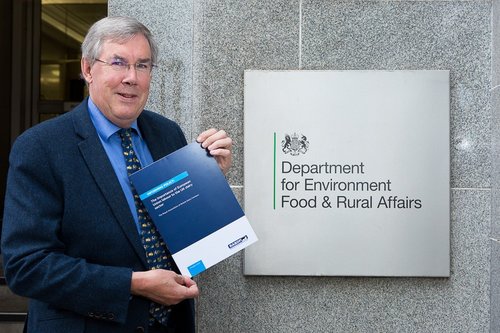A report outlining the case for UK dairy farming to maintain access to EU labour in the short term, and improve the pipeline of domestic labour in the long term, was presented to Defra’s Access to Labour Team by the Royal Association of British Dairy Farmers in London today (3 October).
Presenting the report, policy director of RABDF Tim Brigstocke said it had concluded that UK dairy farming sector labour requirements were specifically about permanent, skilled roles. Current reliance on EU labour would mean an almost catastrophic failure within the sector should short term access to overseas workers not be maintained.
“However, with our latest survey estimating 56% of dairy farmers currently employ workers from the EU, it is not resilient either for us to continue to rely so heavily on overseas labour in the long term,” he said
“So we want to look at how we can keep dairy farming from falling off a cliff edge while addressing the issues that turn off UK workers from seeking a career in the sector. Some of this will involve farmers and those in the supply chain taking a long hard look at why the reputation of dairy farming is as it is.
“RABDF is exploring specific activities it can undertake to promote dairy farming in a positive light and raise its profile to inner city schools and their subsequent careers advisors. It will also discuss these key areas at its Business and Policy conference on Wednesday 18 October (www.rabdf.co.uk/business-policy-conference) at which farming minister George Eustice will be speaking.”
Further conclusions surrounding this paper suggest that the specific need for labour on dairy farms must be considered within Brexit negotiations and migration targets. Measures to secure continued access to semi-skilled and skilled European labour must be in place to avoid disadvantaging UK dairy farmers and impacting on the economic viability of the sector, UK food and nutritional security, and farmer and animal health and welfare.


